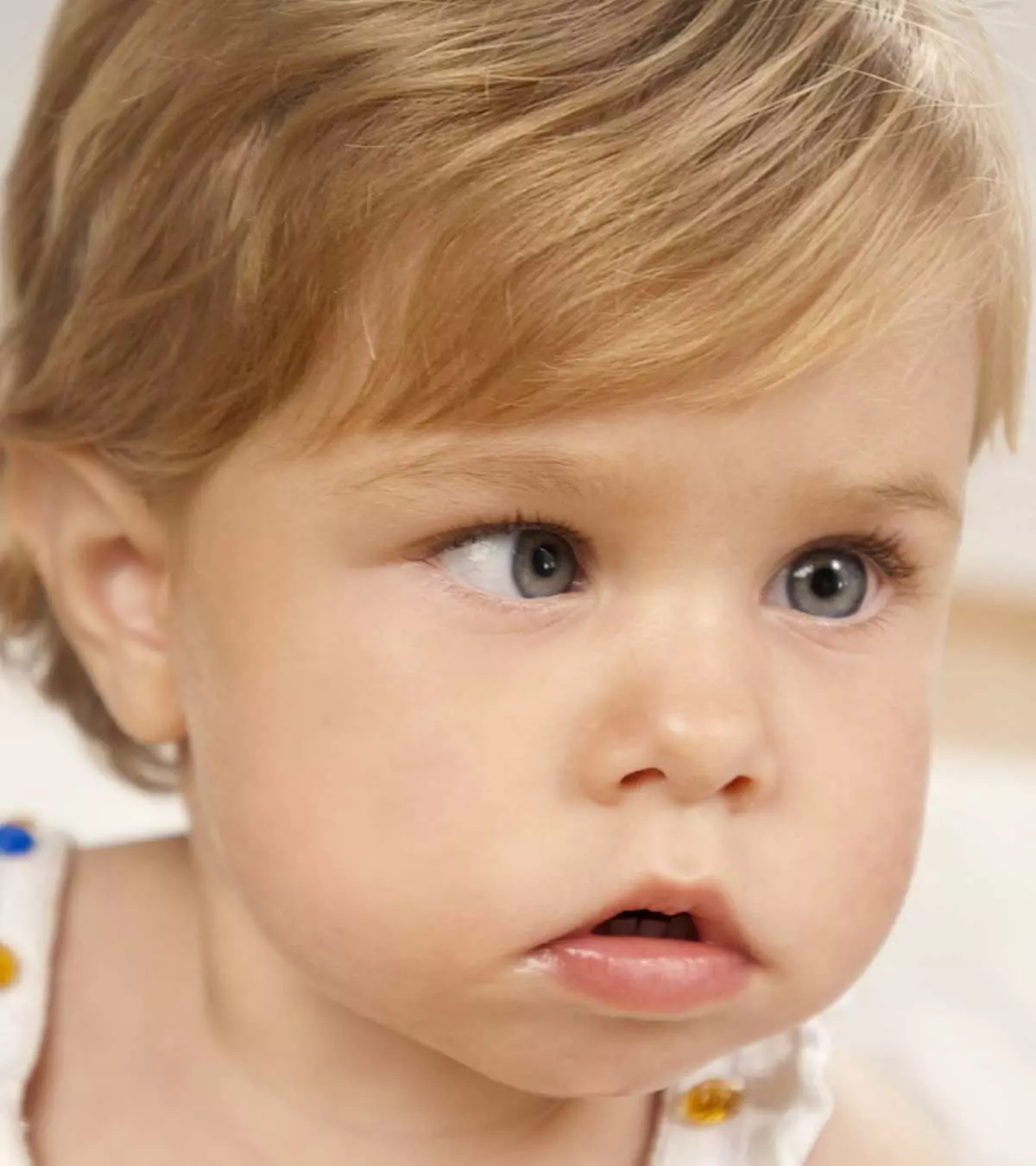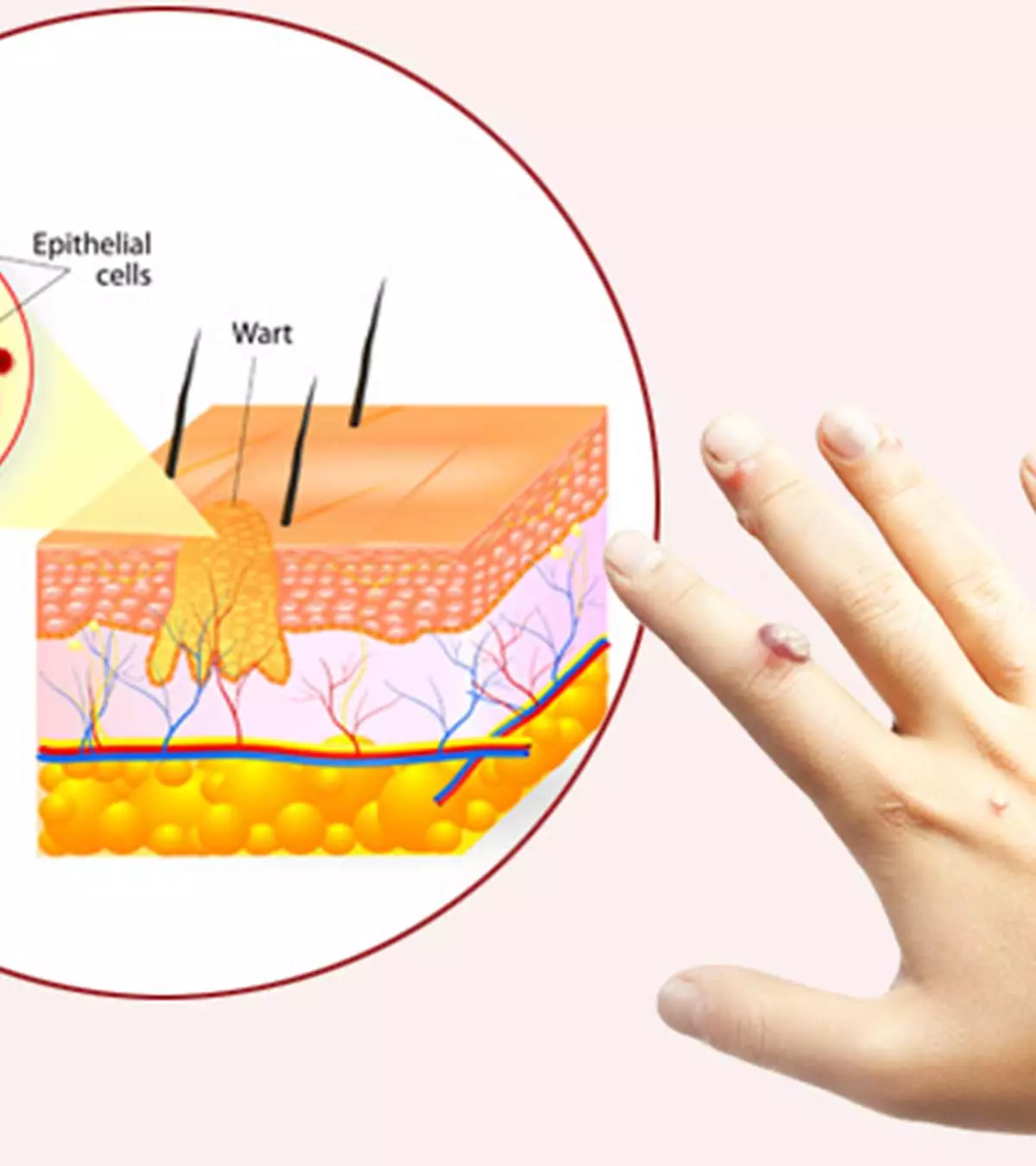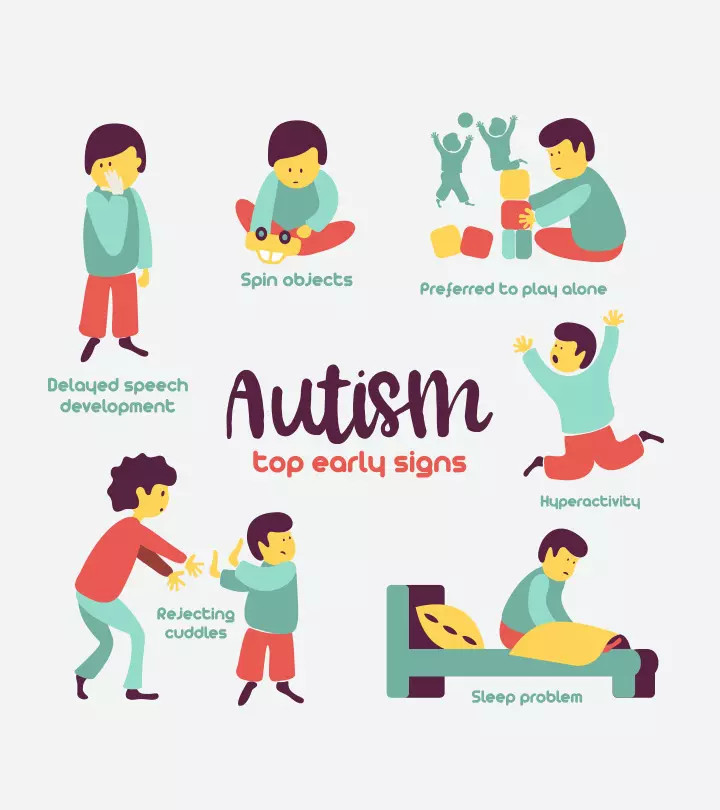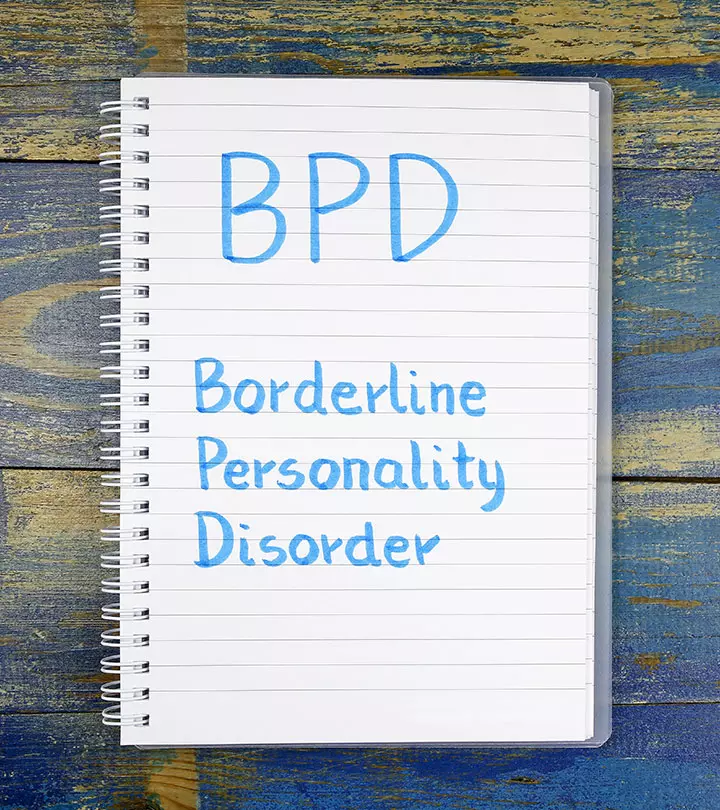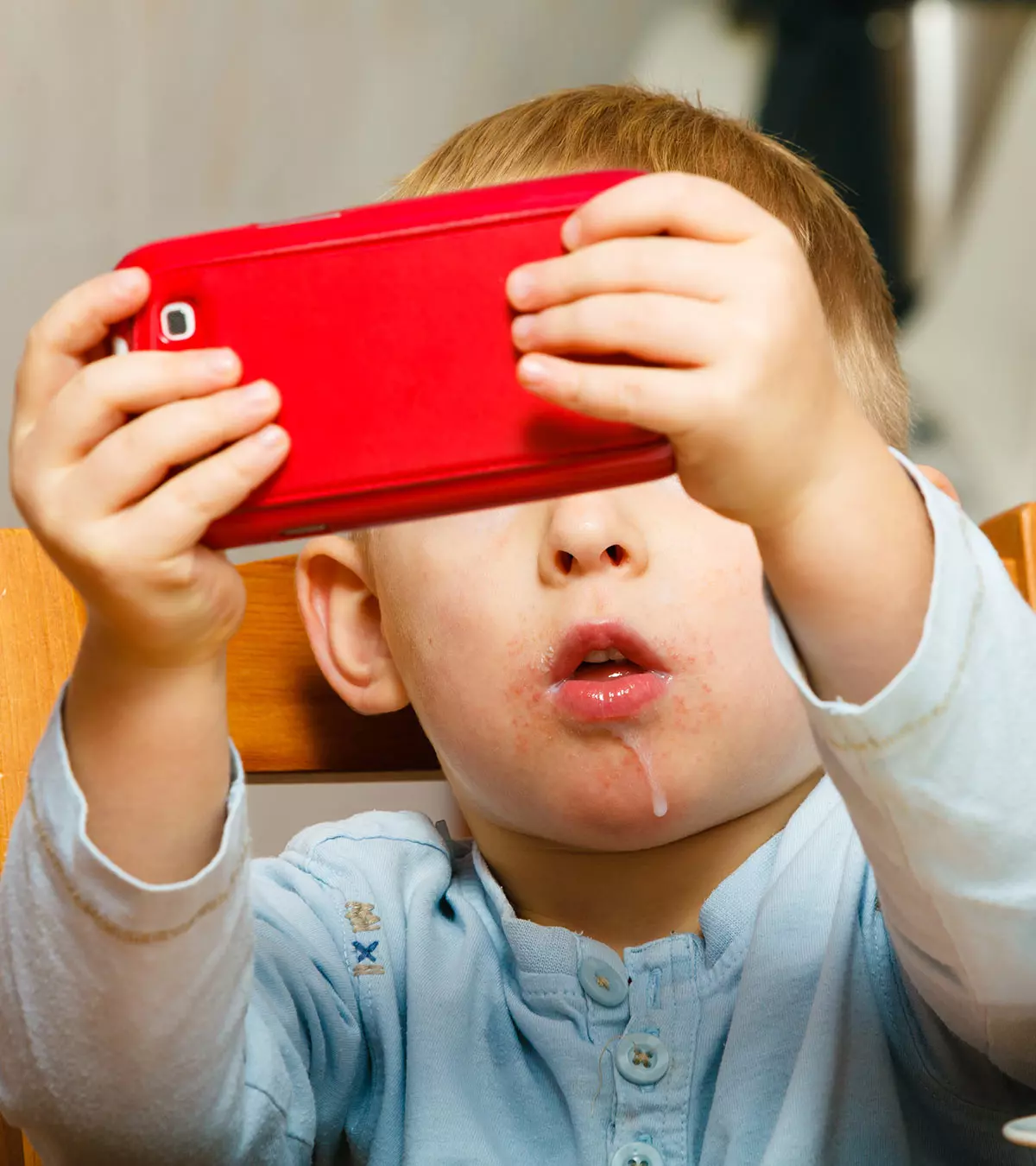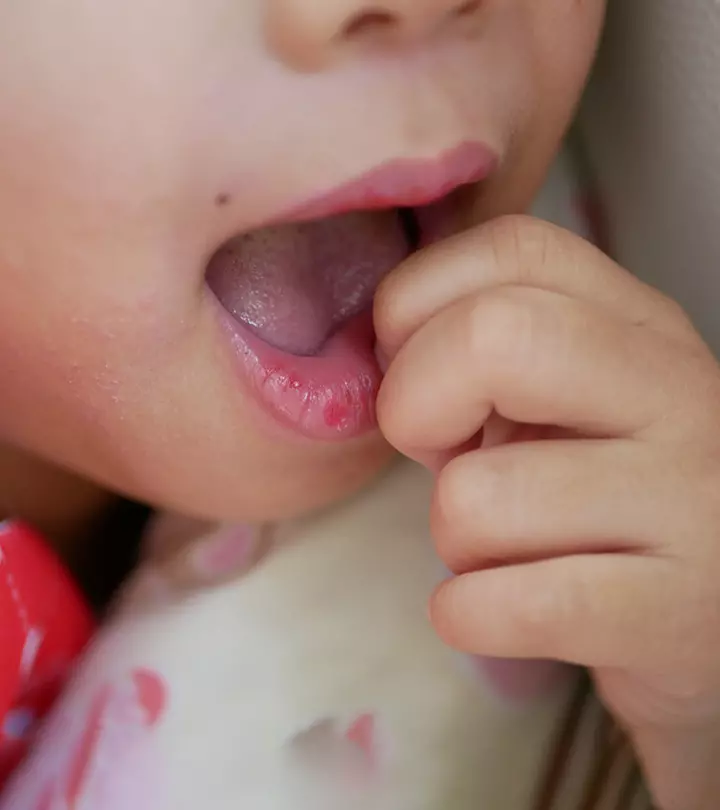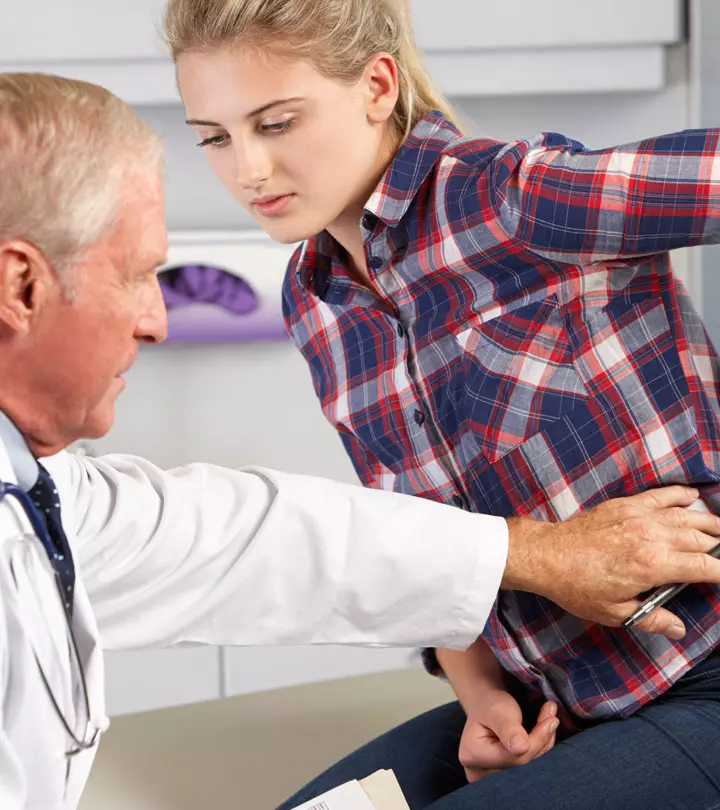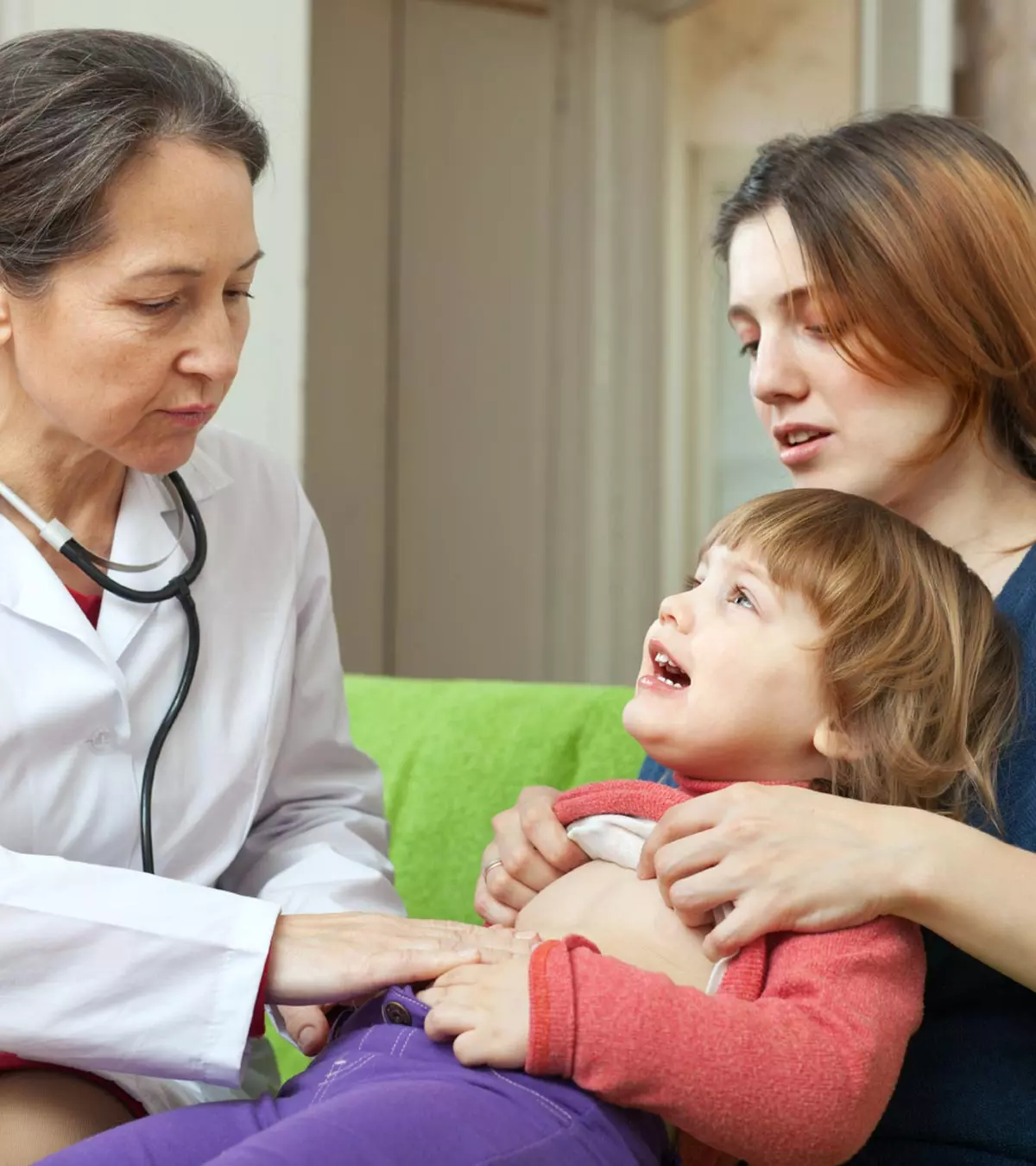
Image: ShutterStock
Escherichia coli or E. coli infection is more prevalent in children and older adults than in other age groups (1). The E.coli bacteria that cause E. coli infection in children are mostly harmless and are commonly found in the intestinal tract. However, some strains of the bacteria can cause various infections, such as gastrointestinal infection, foodborne illnesses, and acute kidney or renal failure.

If your children have diarrhea, it is important to consult a healthcare provider to prevent dehydration and avoid further complications. Read this post for more information on the types of E. coli infections in children, their causes, symptoms, diagnosis, and treatment options.
Key Pointers
- E.coli infection poses a higher risk to young children, older adults, and children with compromised immunity.
- Contaminated food and water or contact with an infected person can lead to E.coli infection.
- E.coli infection is not airborne and cannot spread through coughing, sneezing, or kissing.
- If your child experiences symptoms such as bloody diarrhea, fever, vomiting, and severe stomach pain, seek immediate medical attention from a pediatrician.
What Are Diarrheagenic Escherichia coli?
The pathotypes of E. coli bacteria that cause diarrheal illness are known as diarrheagenic E. coli. According to the CDC, the following six types (strains) of E. coli bacteria are known to cause diarrhea (2).
- STEC (shiga toxin-producing E. coli) is the most common pathotype of E. coli causing foodborne illnesses. This type is also called VTEC (verocytotoxin producing E. coli) or EHEC (enterohemorrhagic E. coli)
- ETEC (enterotoxigenic E. coli)
- EPEC (enteropathogenic E. coli)
- EAEC (enteroaggregative E. coli)
- EIEC enteroinvasive E. coli)
- DAEC (diffusely adherent E. coli)
Escherichia coli O157:H7 is a serotype of STEC bacteria that is commonly identified in North America.
This strain produces shiga toxins that could damage the small intestine lining, resulting in bloody diarrhea (3).
Most strains of E. coli do not cause illness. But some strains of E. coli bacteria can cause urinary tract SepsisiAn extreme and overactive bodily response to an infection. , respiratory illnesses such as pneumoniaiAn bacterial or viral infection that causes the inflammation of air sacs in one or both lungs. , and other extraintestinal illnesses including meningitisiInfection and inflammation of the fluid and membranes surrounding the brain and spinal cord. due to E coli are seen frequently in newborns.
Causes Of E. Coli Infection In Children
E. coli infection is caused when contaminated food or water is consumed, even in small amounts. The various sources of E. coli infection are mentioned next (4).
- Contaminated food is the most common source of E. coli infection. Undercooked meat and unpasteurized milk (raw milk) are significant sources since they can be contaminated during slaughter or milking, respectively. Fresh produce such as spinach and lettuce can be contaminated from runoff from cattle farms. Unpasteurized apple cider vinegar and contaminated raw sprouts can also be a source of infection.
- Contaminated water sources can spread E. coli infection. Untreated groundwater and surface water, including lakes, rivers, streams, and wells can be contaminated by E. coli from animal and human feces. Swimming in or irrigation with contaminated water can also cause illness.
- Close personal contact with an infected person can spread infection. Hand to the mouth or fecal-oral transmission is common in E. coli infection. The lack of proper hand hygiene is a significant reason for the spread of E. coli from person to person.
Consuming cooked food or handling clean water with unclean hands can also spread the infection. E. coli does not spread through coughing, sneezing, or kissing (5).
Risks Factors For E. Coli Infection
The risk factors for E. coli infection include the following (6).
- Young children and older adults are at high risk of infection and developing severe complications of E. coli infection.
- Higher risk of disease in children with weak immune systems due to AIDS, or those undergoing immunosuppression for organ transplants, or treatment for cancer.
- Certain foods, such as those involving raw meat, undercooked hamburgers, or consumption of unpasteurized juice or milk, and soft cheese made from raw milk.

- Use of Nexium (omeprazole), Protonix (pantoprazole), Prilosec (omeprazole), or other stomach acid decreasing drugs may increase the risk for E. coli infections.
 Be watchful
Be watchfulWhat Are The Symptoms Of E. Coli Infection In Children?
E. coli can cause a number of infections in children. In neonates and young infants it can cause urinary tract infection, pneumoniaiAn bacterial or viral infection that causes the inflammation of air sacs in one or both lungs. , sepsis and meningitis. These may present as fever, hypothermiaiAn unusual drop in body temperature, leading to shivering, tiredness, confusion, and slow breathing. , jaundiceiA liver or bile ducts issue that gives a yellow tinge to the skin, whites of the eyes, and mucous membranes due to the pigment bilirubin. , poor feeding, difficulty in breathing, vomiting, diarrhea or irritability.
In older children UTI and enteritis are more common. The presenting complaint may be fever, abdominal pain, vomiting, or diarrhea.
E. coli O157:H7, the strain most commonly associated with hemolytic uremic syndromeiA condition caused by E.coli that blocks the blood vessels of the kidneys, causing them to get damaged eventually. , usually shows foodborne illness symptoms three to four days after exposure and resolves within a week. However, some children may become sick within a day, whereas others could become sick after a week.
According to a study conducted by the World Health Organization (WHO), approximately ten percent of those who have contracted E. coli infection may also develop hemolytic uraemic syndrome (HUS). Common signs and symptoms of foodborne E. coli infection are (7):
- Abdominal pain or cramping
- Abdominal tenderness
- Diarrhea
- Nausea
- Vomiting
E. coli infection may cause low-grade fever or no fever at all.
Diarrhea in E. coli infection can have varied presentation depending on the infecting serotypeiClassification of cells or microorganisms, such as bacteria or viruses, based on the antigens or other molecules found on their surfaces. :
- Watery diarrhea without blood or mucus (ETEC)
- Mild watery to severe blood stained often with vomiting (EHEC)
- Watery diarrhea with fever, vomiting and pain on defecation (EIEC)
- Watery or bloody diarrhea (EPEC and EAEC)
These symptoms provide a clue to the cause of diarrhea but are non specific for any serotype or even E.coli.
When taking your infant or child to the pediatrician it is important to mention – exact duration of diarrhea, frequency, colour, smell, presence or absence of blood and mucus, consistency (watery or semisolid), quantity of stools and presence of other symptoms of infection like vomiting, fever etc if they are associated.
When To Consult A Doctor
Seek immediate medical care if you notice bloody diarrhea in children. Persistent watery diarrhea and vomiting also require prompt management to avoid dehydration and other electrolyte and fluid-loss complications.
Seek immediate medical care if your kid has:
- Bloody diarrhea.
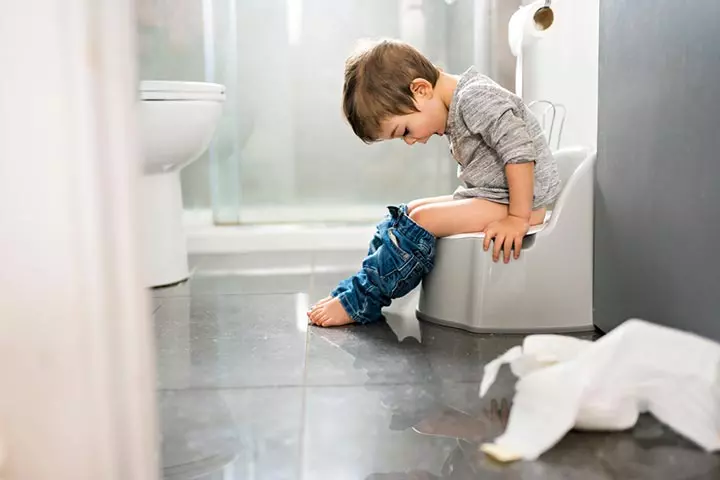
Newborns and infants are at risk of more serious infections as compared to older children and immediate medical help should be sought if they have symptoms like high or low temperature, refusal to feed, breathing difficulty, excessive crying, decreased urine, jaundice etc.
Complications of E. coli Infection
Constant diarrhea in E. coli infection could lead to loss of electrolytes and dehydration. Rarely, young children may develop a severe kidney failure known as a hemolytic uremic syndrome (HUS) (8). Kidney failure in E. coli infection requires prompt medical care. In the absence of proper medical management, the diarrhea may become chronic leading to malnutrition.
Diagnosis Of E. Coli Infection In Children
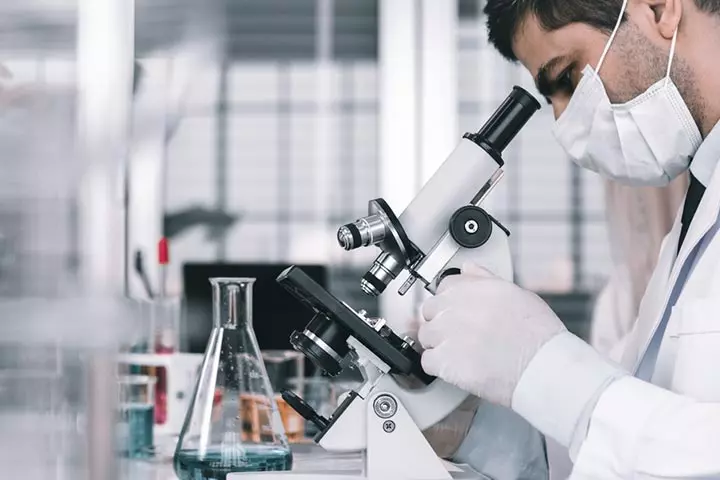
The diagnosis of E. coli intestinal inflammation is made after laboratory analysis of stool samples. Bacteria may be cultured to confirm the diagnosis. Laboratory tests could help determine specific toxins from each strain of E. coli bacteria (9). These are not prescribed routinely and are done only if the pediatrician deems them necessary.
Blood tests are often performed to know fluid and electrolyte loss if dehydration is present. Blood tests also give blood cell count and serum creatinine levels that help diagnose hemolytic uremic syndrome (HUS). In some cases, additional tests may be performed to identify the specific E. coli strain and associated toxins. Accurate and timely diagnosis is crucial for effective treatment and preventing complications (10).
Treatment For E. Coli Infection In Children
Supportive therapies are given in bacterial gastroenteritisiInfectious disease leading to inflammation of the digestive tract with symptoms such as abdominal pain, diarrhea, and nausea. based on the symptoms present. Rehydration through fluid replacement preferably oral is given to prevent or improve dehydration caused by diarrhea (9). Gastroenteritis (stomach flu) in children caused by E. coli bacteria usually resolves in a week for most people.
Severe dehydration may require hospitalization and intravenous (IV) fluid replacement, whereas mild cases can be treated with oral rehydration solutions and rest. Intravenous fluids and transfusion of red blood cells and platelets (rarely) are done for the management of hemolytic uremic syndrome. Some may require dialysis and plasma exchange due to kidney impairment (10).
A monoclonal antibody, Soliris (eculizumab), may be given to children with atypical hemolytic uremic syndrome to prevent blood vessel damage (11). It is recommended to give meningitis vaccines for those children who are not vaccinated before treating with eculizumab since the drug may increase the risk of meningococcal diseaseiA severe bacterial infection caused by Neisseria meningitidis, leading to either blood or brain and spinal cord infections. (12). Ensure proper rest and monitor their condition closely. Seek medical help if the symptoms worsen.
Home Care Instructions For E. Coli Infection In Children
You may follow the below-listed tips at home to reduce symptoms and prevent dehydration while the child recovers from E. coli infection (7).
Give lots of clear fluids to your child to avoid dehydration. Water, clear sodas, diluted juices, and soups are good options to maintain hydration.
- Avoid pear juice, apple juice, sugary liquids and alcoholic or caffeinated beverages since these may worsen symptoms.
- Feed low fiber and easily digestible foods. Rice, toast, and curd can be given.
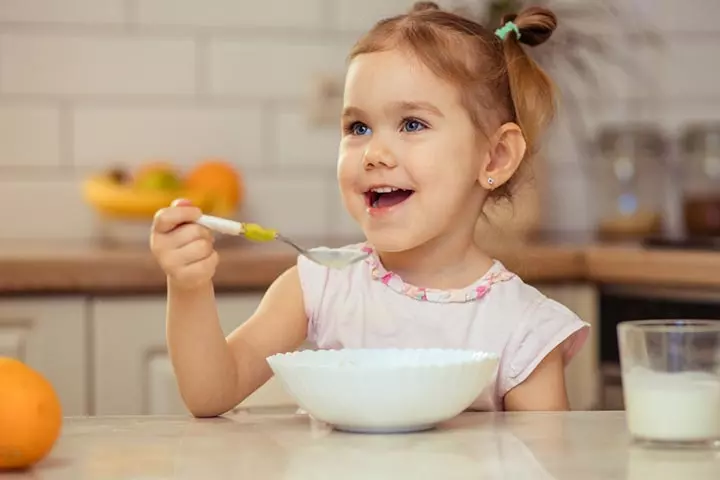
- Avoid high-fiber foods, dairy products except homemade curd and buttermilk, high-fat foods, spicy foods, foods with added preservatives that may worsen diarrhea.
If your child has severe diarrhea and dehydration, seek medical care for fluid replacement. The child may require IV fluid replacement if oral intake is inadequate to maintain hydration.
How To Prevent E. Coli Infection In Children?
There are no vaccines or medicines to prevent E. coli infection at present. The only way to prevent E. coli illness is to implement food safety measures and avoid risky foods or cross-contamination.
You may try the following tips to reduce the risk of E. coli infection (13) (14).
- Cook meat items to at least 145°F (62.6°C). Food items such as ground beef, pork, and hamburgers should be cooked to at least 160°F (71°C). Grayish or brownish color could indicate the meat is cooked. However, using a food thermometer is a more accurate option.
 Experts say
Experts say- Avoid drinking unpasteurized milk or juice. Do not use unpasteurized apple cider vinegar. You may look for labels to identify safety measures before buying it. Although labels may not mention, bottled or boxed juices are likely sterilized.
- Wash all fruits and vegetables thoroughly under running water. You may use a soft brush to scrub vegetables with tough skin, such as pumpkin. There is no need to wash fruits and vegetables with soap or other washing products.
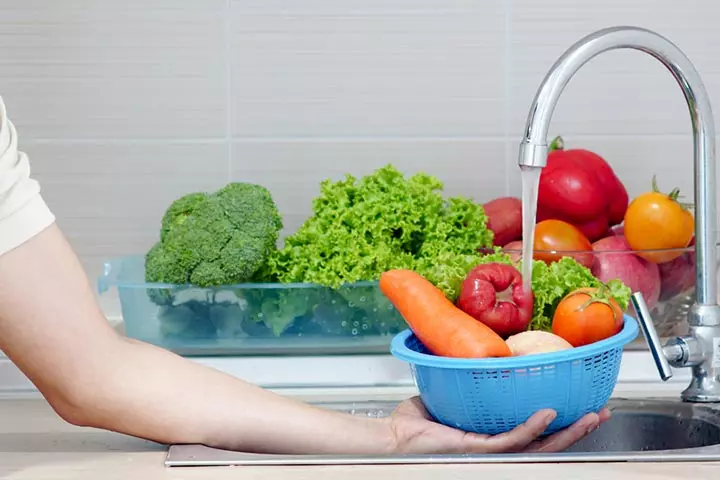
- You may use EPA-regulated public water systems for safe drinking water. If you are unsure about the quality of the tap water, then you can use a household water filter.
- Avoid eating at places that do not follow proper hygiene practices.
- Carry your own water or drink reliable packaged mineral water while traveling to minimise the risk of E.coli.
- Prevent the child from playing in lakes and ponds that have no safety approval from local agencies. Children should avoid swallowing water even while using swimming pools that are clean and chlorinated.
- For children with diarrhea, if you notice blood in the child’s stools, keep a close watch on urine output as well.
- If your child is diagnosed with a urinary infection at any time, the next time they have a fever or diarrhea, inform the treating doctor.
The following tips may reduce cross-contamination of E. coli.
- Wash utensils in water and soap before and after use. Always wash knives, cutting boards, countertops, etc. after coming in contact with raw meat or fresh produce.
- Keep raw food on separate vessels. Keeping cooked meat on the same plates you kept raw meat causes cross-contamination.
- Wash hands before and after handling food items, eating, using the toilet, changing diapers, touching animals, etc.
- Do not touch any other food item or cooking vessel without washing hands after handling raw meat and fresh produce.
Frequently Asked Questions
1. How long does it take to recover from E. coli for kids?
Children can recover from E.coli infection in five to ten days (7). Most recover without medical treatment. However, in some cases, antibiotic treatment may be prescribed.
2. Can E. coli in children affect the brain?
According to a 2018 research, E.coli can disrupt central nervous system (CNS) function, especially in neonates. E. coli meningitis occurs when the bacteria invade the special cells that protect the brain from the circulating microbes and toxins (15).
3. Is yogurt good for treating E. coli infection in kids?
Infographic: Home Care For Children With E.Coli Infection
E.Coli infection in children may lead to various problems, from diarrhea and dehydration to severe conditions, such as UTI and hemolytic uremic syndrome. Therefore, prompt diagnosis and treatment are crucial. Explore some effective home care and the preventive tips in the infographic below for faster recovery of children with this infection.
Some thing wrong with infographic shortcode. please verify shortcode syntaxE. Coli might be considered a pediatric infectious disease that manifests differently in various individuals depending upon the type of infection and the age group. Although the symptoms are mostly mild and may be managed with home remedies and care, it is ideal to consult a doctor to prevent the situation from worsening. In order to avoid any discomforts, try to ensure that children maintain hygiene and avoid raw or poorly cooked food, along with other precautionary measures to prevent contracting the infection in the first place.
Illustration: E. Coli Infection In Children: Causes Symptoms & Treatment
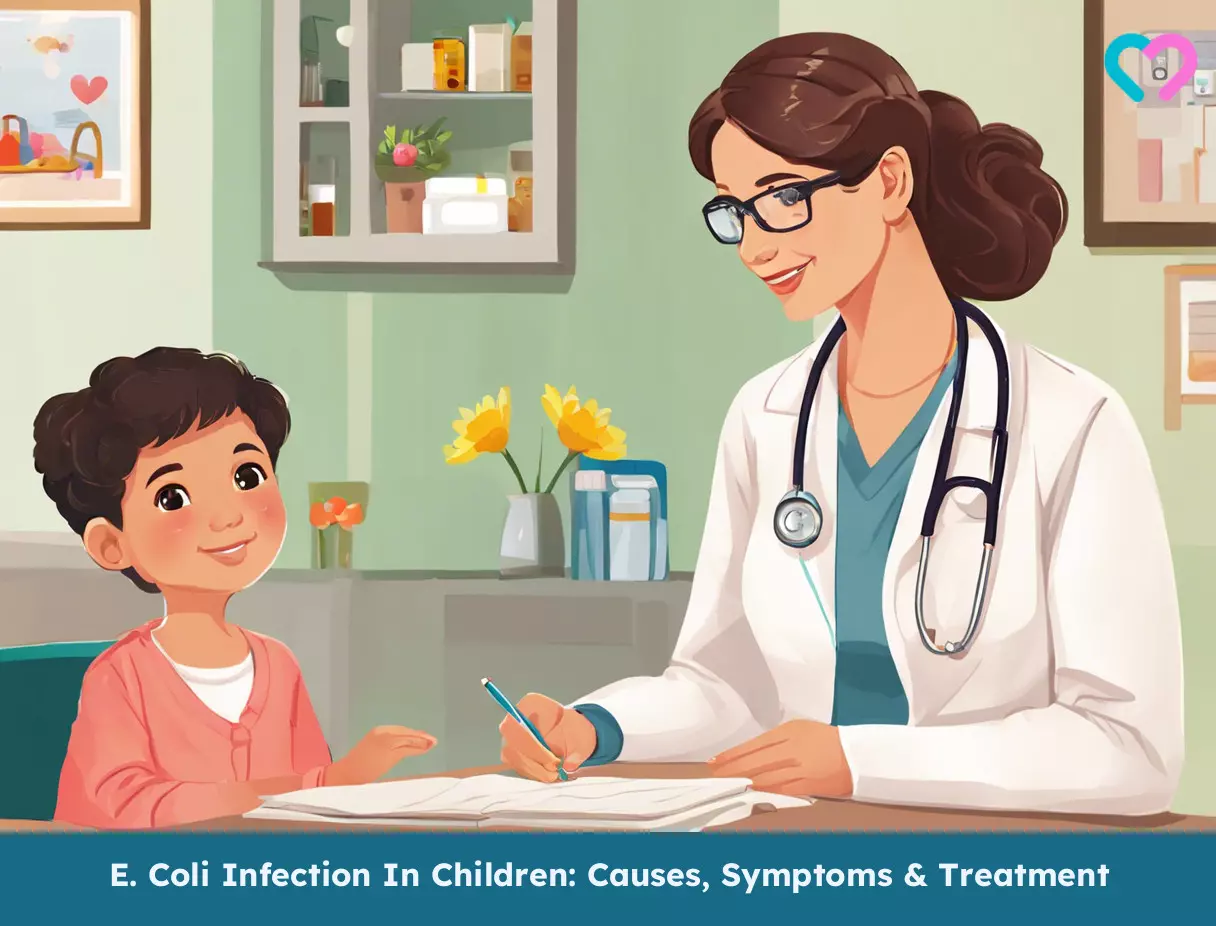
Image: Stable Diffusion/MomJunction Design Team
References
1. E. Coli; The World Health Organization
2. About Escherichia coli Infection; The Centers for Disease Control and Prevention
3. Non-O157 Shiga toxin-producing E. coli (STEC); The Minnesota Department of Health
4. E. Coli Infection From Food or Water; C.S. Mott Children’s Hospital; Michigan medicine
5. E. Coli Bacteria; Ministry of Health; Ontario
6. E Coli; St Clair Hospital
7. E coli Infection in Children; Saint Luke’s Concierge
8. Hemolytic Uremic Syndrome (HUS); The Minnesota Department of Health
9. E. Coli Infection; Familydoctor; The American Academy of Family Physicians
10. Hemolytic Uremic Syndrome in Children; The National Institute of Diabetes and Digestive and Kidney Diseases
11. Kioa L Wijnsma, et al.; Eculizumab in atypical hemolytic uremic syndrome: strategies toward restrictive use; The United States National Library of Medicine
12. Meningococcal Vaccination: What Everyone Should Know; The Centers for Disease Control and Prevention
13. E. coli; St. Louis Children’s Hospital
14. How to Prevent E. coli infection; The Centers for Disease Control and Prevention
15. Wen-Tong Liu et al.; New insights into meningitic Escherichia coli infection of brain microvascular endothelial cells from quantitative proteomics analysis; Biomed Central
16. Preventing Vaginal Yeast Infections With Lifestyle and Diet Changes; Intermountain Healthcare
17. C M Kotz et. al.; In vitro antibacterial effect of yogurt on Escherichia coli; NCBI
Community Experiences
Join the conversation and become a part of our nurturing community! Share your stories, experiences, and insights to connect with fellow parents.
Read full bio of Dr. Pooja Parikh
Read full bio of Dr Bisny T. Joseph
Read full bio of Swati Patwal
Read full bio of Anindita Ghatak







